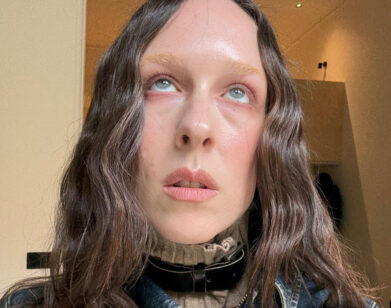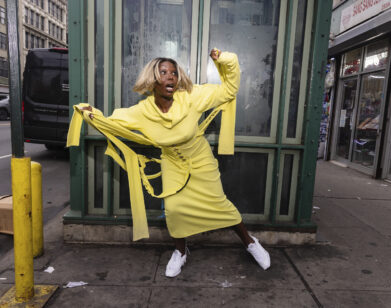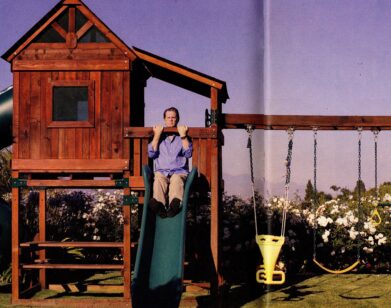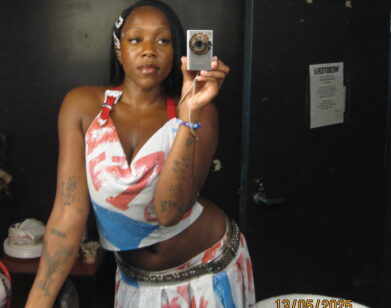Jamila Woods and Macy Gray Compose Their Own Legacies
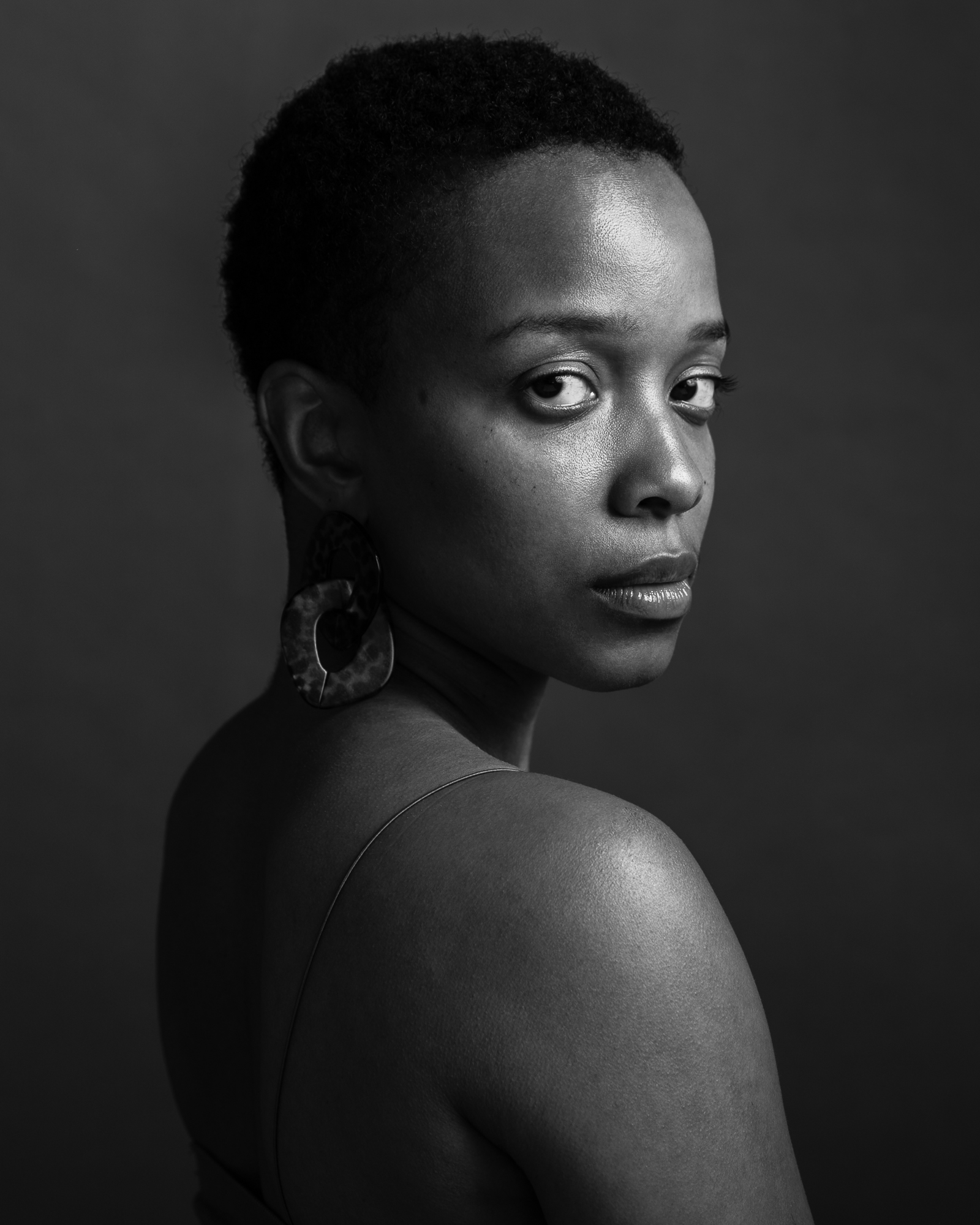
Macy Gray is, undoubtedly, an original. The kaleidoscopic musician has maintained her position as a soul-inspired fixture on the fringes of popular music, perpetually shifting while remaining fundamentally herself. Having studied screenwriting before launching her music career, Gray mirrors her songwriting to the plot structures of movies, though she recognizes the unorthodox results. “I’m aware I make music that isn’t mainstream,” she admits. “But I just stick to what I know how to do best. Because when I try to do something else, it doesn’t work out. It eats away at my soul.” Ten albums later, the idiosyncratic Gray is still floating just outside the sphere of what’s popular, as comfortable singing with Santana and The Black Eyed Peas as she is with Ol’ Dirty Bastard and Ariana Grande. Gray, who has openly discussed her experience with bipolar disorder, cites her music as a vital creative outlet, as evidenced by “Buddha,” her latest music video directed by Teyana Taylor. But it was 1999’s “I Try,” undoubtedly her most recognizable song to date, that signaled upon its release that the smoky-voiced Ohioan was not only a rising musical phenom, but one that would be eternally unclassifiable.
In the two decades since Gray’s debut, the singer Jamila Woods has risen as R&B’s preeminent poet laureate, though that’s not the genre classification she prefers. “People call my music R&B, and that’s fine,” she says. “But I think there’s a thing where a lot of black artists who aren’t making R&B music get called R&B artists because they’re black, basically. It’s curious to me how black artists working in black genres get treated, versus when a non-black artist working in that genre is more celebrated.” While carving out her own artistic legacy, Woods’s second album, the aptly titled Legacy! Legacy!, looked to James Baldwin, Zora Neale Hurston, and other black icons of American art, literature, and music for inspiration. The album is both a celebration of these various voices and an investigation of their place in America, as seen through Woods’ intricately woven lyrics. One Monday afternoon, Woods joined Gray at her home in Los Angeles to discuss the musicians and writers’ respective histories, both musical and personal, and make a case for creativity, vulnerability, and Lil Nas X. —MARK BURGER
———
JAMILA WOODS: How did you start out singing?
MACY GRAY: I always had a really peculiar voice, so I never attempted to have a singing career, because people always kind of mocked me and stuff. But I liked writing songs, and when you write songs, you gotta sing the idea. I went to USC, and this kid was, like, “Hey, I just need a singer for this brunch every Sunday.” He didn’t really care if I could sing or not, because if he didn’t get a singer, he would lose the gig. And everybody would get $100 and when you’re in college, $100 is–
WOODS: It’s a lot.
GRAY: [Laughs.] It’s like a million dollars. I said sure. I didn’t really care if I could sing or not. And I really probably couldn’t at the time. I was always around bands, then I started my own rock band. A lot of the kids had these little 4-tracks in their rooms, little 8-tracks, and we were always just in there messing around and making music, and pretty soon I was playing clubs. It was was all fun, because when you’re 17, 18 in school, and they tell you to pick your major, you really don’t know what you wanna do. I mean, I didn’t. I had no idea.
WOODS: And you studied screenwriting?
GRAY: Yeah. I was good with the pen. I applied to only writing schools in California, because I wanted to move to there. I was from Ohio. I got into Stanford, I got into USC, and then I picked USC because it was in L.A. [Laughs.] None of it was planned. I hustled around, I started playing clubs. Back then there was a lot of promoting yourself, like putting stickers on stop signs, and standing on the corner and handing and flyers to your show. Like when you go to New York and they give you those little comedy flyers.
WOODS: Yeah. Or their mixtape.
GRAY: Yeah, exactly, the mixtapes. We used to do that.
WOODS: Did you feel like studying screenwriting helped you with writing songs? Or changed the way you approached it?
GRAY: Yeah, because the number one thing you learn in screenwriting is format and structure. They teach that, more than anything, there’s the beginning, the middle, and the end. I think one thing my songs are good about is they tell stories. They start somewhere and they end up somewhere. It’s kind of like how movies are structured. It helped a lot with the way I write.
WOODS: I feel like writing poetry for so long definitely affects the way I write songs. Also, I care so much about the lyrics. On my most recent album, it’s just a lot of words. I was just at a songwriting camp, and I was realizing other people think about lyrics much differently. It’s more about the sound, and not caring if people really can understand what they’re saying. How important are lyrics to you?
GRAY: They’re everything. When you sing a song, you sing the lyrics. Every once in while you hear a song and you remember the bass line, like, “Another One Bites the Dust.” Everybody knows that bass line. But that’s so rare. Hip-hop is probably the number one music right now, and that’s poetry. It’s what they say. But I know most singers just care about a big hook and getting on the radio. So how did you get started?
WOODS: I always loved singing, and I was in a lot of church choirs. But I never thought that I could sing as a solo artist, just because my voice couldn’t do the things I saw other people doing, like getting the solos and doing runs. I ended up getting into poetry kind of by accident–I signed up for the music one and the theater one, and they just put me in the poetry one. Then I fell in love with it because it felt like a language that I could finally speak that everybody understood me in.
Before, growing up, being in all-white spaces, I was always being told I wasn’t black enough for that space, or I was too white for another space. It was just always like, “Am I talking the right way? Are people able to listen to me?” And when I did poetry, everyone sat up and was listening to me, and I felt like they heard me. That carried over to when I first got into a band after college and started writing songs for myself. Then I realized, “Oh, I can sing these songs, because they’re my songs, I wrote them for myself,” as opposed to when I try to sing a Whitney Houston song. I love Whitney Houston, but I would feel like I was failing if I was singing her songs.
GRAY: Yeah, everybody fails when they try to sing her songs. It’s impossible.
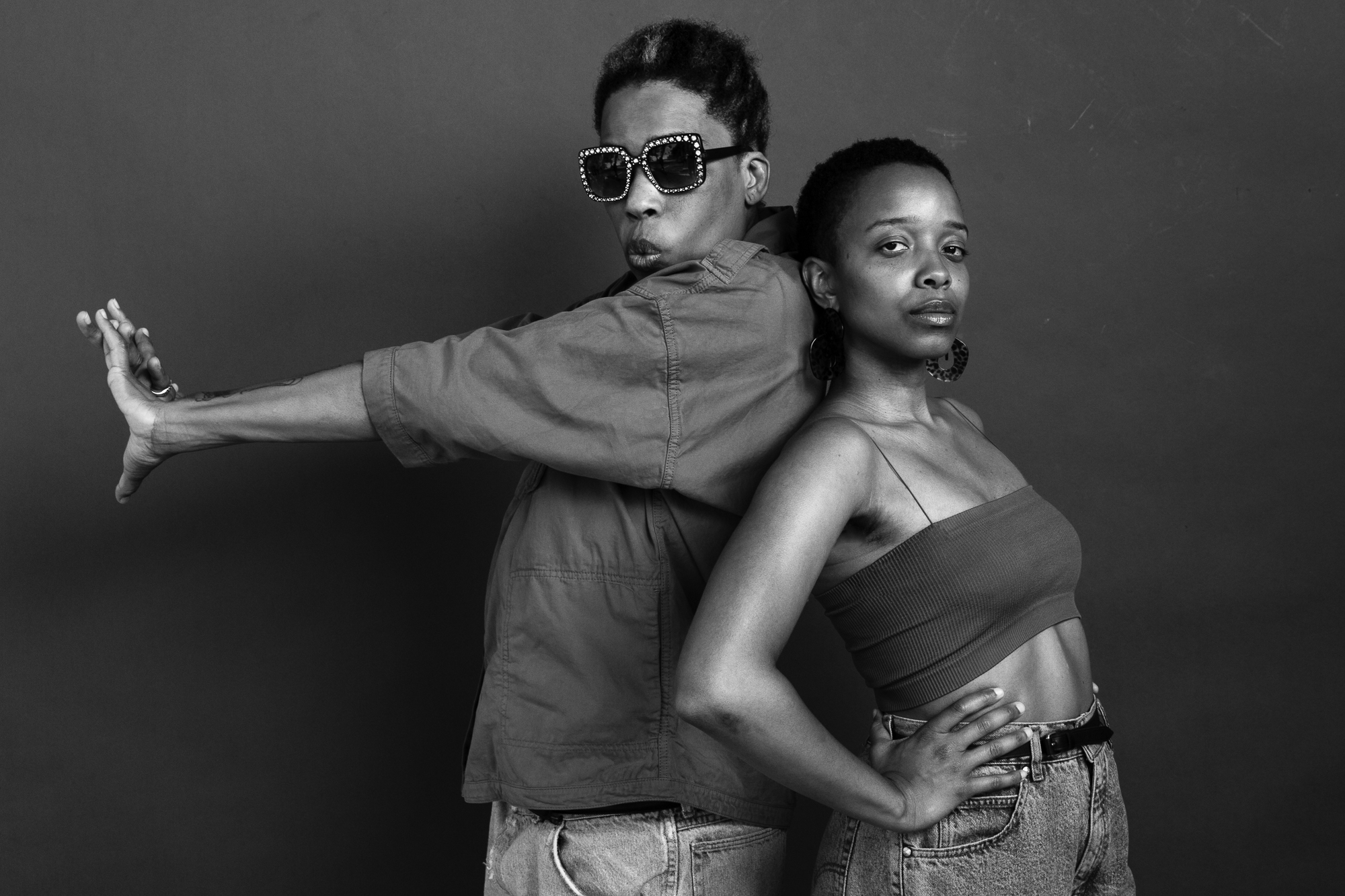
WOODS: You have made ten albums in 20 years, and that’s a lot of albums for that amount of time.
GRAY: Yeah, just how long it takes.
WOODS: How much time goes into each one? And how do you build up? Because for me, moving from my first album to the second, there was a sense of how I thought people perceived me and wanting to be free to move on from that and go in a different direction. How do you let yourself evolve when you know people come to expect something from you, or think that you sound a certain way?
GRAY: I think that’s just the only way I know how to do it. I don’t really know how to make records any other way or sing any other way. I’m aware I make music that isn’t mainstream. I’ve definitely had that doubt with myself. Sometimes people react, and sometimes they don’t, but I just stick to what I know how to do best. Because when I try to do something else, it doesn’t work out. It eats away at my soul. It just doesn’t feel right. So, what is it about Chicago? Because you’re from Chicago. Who are the artists you got? You got Kanye, you’ve got Chance the Rapper. I know you work with him. What is it about Chicago that all this good music comes out of there?
WOODS: When I was at school, I learned everyone is obsessed with New York and L.A. It was like, no one can do anything unless it’s New York or L.A. People don’t really think about us. So I think there’s a sense that you have to work harder being from Chicago, and people have a more collaborative energy because there’s not a bunch of labels or a bunch of industries. There’s more freedom to work with whoever you wanna work with, and a lot of people do more than one thing. I noticed that about a lot of people in Chicago, like Saba—he’s on my album, he’s an amazing rapper. He produces, raps, and writes the singing parts often. He just does everything.
GRAY: Who do you listen to? Who helped shape your record?
WOODS: My parents had a lot of Stevie Wonder, so I was really inspired by him, especially Conversation Peace. How he would write about very serious or political issues, but you wouldn’t necessarily know that if you listen one time. I listened to a lot of rock all through high school and middle school. I love bands like Incubus and Nirvana. I liked listening to that music because I could sing along to it, and they weren’t doing a lot of crazy stuff–they’re just, like, yelling or talking.
I’ve also been listening to a lot of R&B lately. People call my music R&B, and that’s fine, but I think there’s a thing where a lot of black artists who aren’t making R&B music get called R&B artists because they’re black, basically. I think there’s a kind of disdain for that, which is very fair. But I also think black R&B is an amazing genre, and I’m trying to listen to it more to kind of study what is it that makes R&B, and what an authentic R&B sound is. It’s curious to me how black artists working in black genres get treated, versus when a non-black artist working in that genre is more celebrated. Then black artists making folk music and rock music, it’s like, they still get called R&B.
GRAY: I mean, you don’t really call, like, Justin Timberlake an R&B artist, but his music is super R&B.
WOODS: He can be called a pop artist.
GRAY: We’re all in the same boat when it comes to music. Like, if you wear a cowboy hat like Lil Nas X? So he sings about a horse, and he wears a cowboy hat, so everybody goes, “Oh, it’s country/hip-hop,” but there’s nothing really country going on in that song. Not one thing. I mean, the hook is like… but the music is not country, is it? There’s nothing country in there. But because he did it with Billy Ray…
WOODS: But if a white artist had made that same song, it could’ve been country, no problem. So, I feel like it was the country music people not wanting to let him in because he had hip-hop elements fused in with that style. I mean, I liked that Billy Ray got on the song because he cosigned him in a way to be more authentic in the eyes of the white country music gatekeepers. That’s a great example of that in the industry. It’s easier for a white artist to kind of play in mixing genres. And when black artists try to do it, it’s like, “No, stay in your black music area.”
GRAY: I think race is… it doesn’t really change just because we do music. It’s just like hip-hop. I remember the last time I went to a Wu-Tang concert and, at minimum, half of them were white kids. When you go to an Eminem concert, it’s mostly white, even though he’s making hip-hop. I think you identify with who you identify with. It depends where you come from.
WOODS: Is there an audience that you want your music to reach?
GRAY: I want everybody to love it. I think my fans are mostly women, and a lot of them grew up with me. A lot of my fans are moms. Women, educated, they all have jobs, went to school. You tend to identify with people who look like you, and are talking about what you come from. When you have somebody like Biggie Smalls come out, all his fans were from New York. I mean, you liked Biggie no matter where you were from, but he spoke for New York. Brooklyn and Harlem went crazy because he looked like them. I don’t know if it comes down to racism. And then once in a while, you have an artist like Michael Jackson or Whitney Houston–they just resonate, no matter where you come from. But that’s a challenge every artist has. I think it’s important to be consistent about who you are and where you’re coming from. I think it’s important, as an artist, to speak for someone.
WOODS: I was always taught in poetry that the more specific you get about something, the more universal it gets to be. When someone reads that poem they’re gonna think about their corner. It’s not gonna push them out or alienate them, it’s gonna invite them in to think it. I think me being specific about who I’m writing to, it’s black women like my younger self. That’s not shutting a door out to everyone because you’re not that person, it’s inviting them to connect to it in a way that is authentic to them.
I think that there’s a lot of overt blackness in my music. I feel like a lot of black people recognize that, and are attracted to that, which is my goal. But then non-black people are sometimes like, “Ooh, how do I deal with this type of black music?” Sometimes people are like, “Oh, I’m a white man from Kansas, I’m sorry, I know it’s not for me, but I like it,” and I’m like, that’s cool. Maybe it’s the time we’re living in, where everything is very heightened and everyone is always thinking about what is the right thing to do. I think that is a power, to make you feel connected to something, even when the person doesn’t look like you.
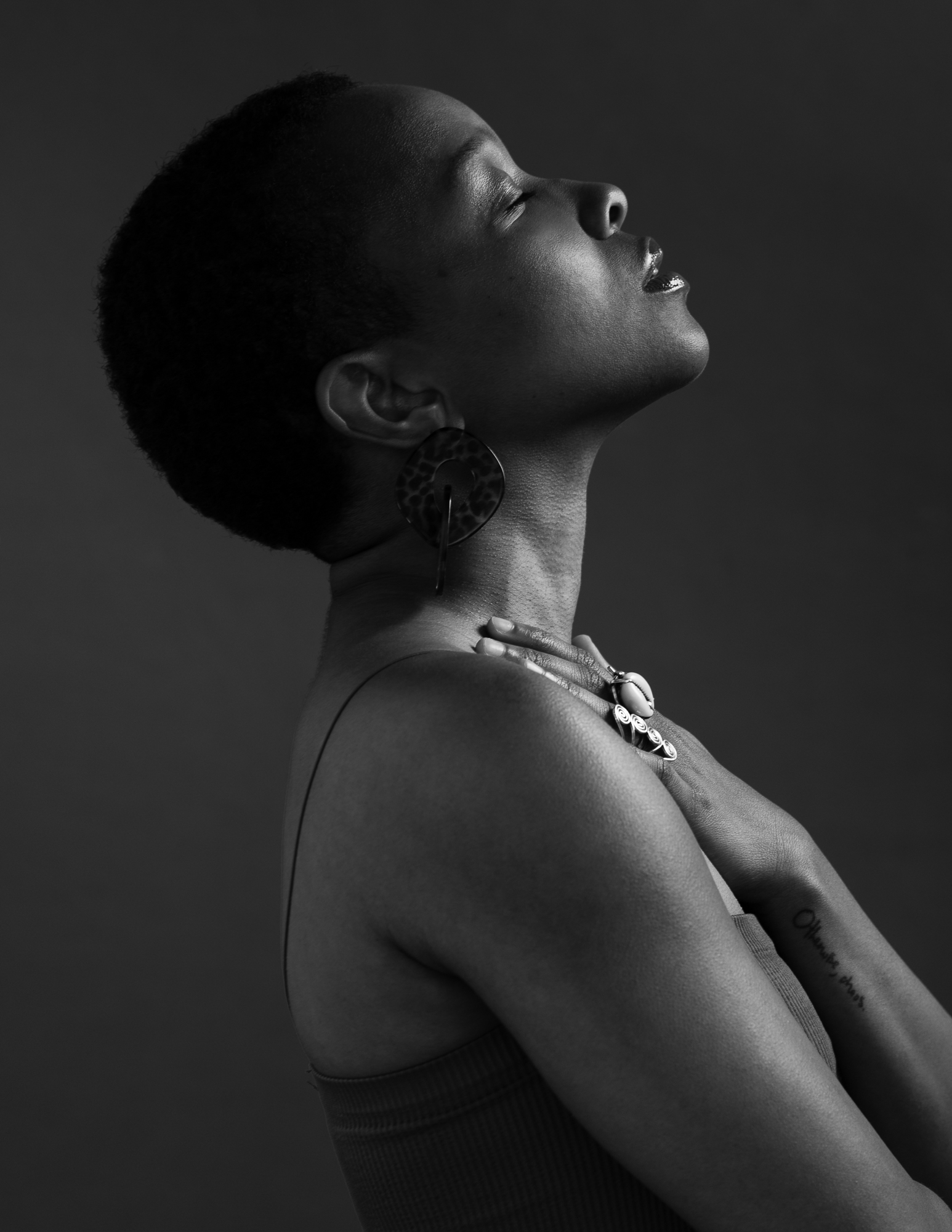
GRAY: Why is that important to you?
WOODS: I think about one of my mentors in poetry, Avery R. Young, who’s just fully, authentically himself at all times. In my music, I’m just trying to celebrate my blackness however I can. I think it’s because my lyrics are very dense and poetic, and saying a lot—you’re never not gonna know what my song’s about. Lyrics are gonna hop out at you. I think that’s why people are met with it very upfront. Now, because I would like to write songs for other people as well, I’m practicing how to write songs that are more abstract, like, “Oh, I think that was a love song,” as opposed to, “Wow, that was a song about James Baldwin, gentrification, and white appropriation.” I want to have that range.
GRAY: So, you wanna talk about that, but then what about the rest of the world? Do you think that alienates them, and you don’t care? Or are you inviting people to learn about your culture?
WOODS: I don’t think it alienates. I think if people get alienated, maybe they don’t like the sound of my voice. That happens. Or they don’t like the music itself. I think it’s about being specific about my experience. It’s not all academic, it’s very personal. There’s a song called “Bubbles” on my first album about just being a black girl: “Black girl be in a bubble/Floating quietly out of trouble.” It’s me being shy, not knowing how to be fully myself. Even if you’re not a black girl, you might know what it feels like to be shy. I don’t think white people should be fearful of engaging in black art. I think that’s counterproductive.
GRAY: That’s awesome. So, how would you feel if somebody said, “I’m making a record celebrating my whiteness”? How would you take that? Would that be offensive to you? Or would you get it because of what you’re doing? Or is that different?
WOODS: Hmm, that’s a good question [Laughs.] It strikes me the wrong way. I mean, this is not the time to be celebrating your whiteness. There’s lots of other things about you. Celebrate your full self, celebrate your full being. I think that is also what I’m doing, and I think that my blackness has been a front-facing part of my being, because I had to learn to love and accept it and embrace it. I don’t feel like white people have to do the same thing with their whiteness. What do you think? How would you react?
GRAY: If somebody said that? I would have to appreciate it. I think everybody has their own little road that they’re going on, and you gotta let people do their thing. People get offended, but you have to realize it’s not about you. Somebody might have had to get to a point where they appreciate who they are. I’ve just learned to let people do them, and if I’m offended, I don’t dig it, I just move on to what I like. I would listen to it. That’s the thing about music–it can go through the core. Sometimes it doesn’t matter where it’s coming from.
WOODS: That’s true.
GRAY: As a musician, I’ve learned to appreciate music and not get into where it’s all coming from. I remember, I was very upset with Kanye, and I was like, “I’m never listening to him again.” But when you play his music, it’s like, “Holy shit!” You know what I mean? When it comes to music, I’m down to celebrate with you if that’s what you need to do. But if you don’t like it, you don’t have to listen to it.
WOODS: I feel like it would come down to whether or not there was an element of vulnerability or authenticity to it.
GRAY: Exactly.
WOODS: Do you have any rituals or practices that keep you centered? How do you clear your mind and get into a space where you’re able to create, or you’re present?
GRAY: It usually only really happens when I’m in the studio. If I’m at home, I’m totally distracted. I usually have to be in a little cave, and there’s nothing to do but meditate. When I’m making my records, nothing else matters. I kind of overeat and stop combing my hair, I wear a hat everyday. I can’t do nothing else.
WOODS: Do you have people who you always like to collaborate with?
GRAY: There’s a couple guys in my band that I love the way they play. I did a record with Ariana Grande, and the guy who produced it, Tommy Brown, we clicked right away. So now I’m working on my next album with him. This last album was magical for me. I finally hit a rhythm where I really know what I do best, and I’m getting to do it even better. I know what I’m doing. Finally.
WOODS: [Laughs.]
GRAY: I was diagnosed with bipolar disorder a long time ago, and as I get older that’s actually been a lot easier to deal with, but it’s inspired a whole lot of songs, which is a good thing. I think the important thing with life in general is just to have that good thing to even out the scales for you. You need that thing that you can do, that thing that you’re good at, that keeps you confident, and keeps you going, keeps you busy. What about you?
WOODS: I think I’m still trying to figure it out, how to consistently do that. I think I need an everyday something that’s gonna center me. I can get very anxious, I get buried in my head. So I try to journal in the mornings, meditate, or do something that’s gonna clear my head, just for a regular day. I think, then, when I go sit down to write, it’s easier. Like working out—I’ll be better in the game with conditioning. But I’m really not disciplined. All my siblings play instruments because they took the lessons and stuck with them. I don’t. When I journal, I know I feel better, but I don’t know why it’s so hard for me to consistently do it. I’m trying.
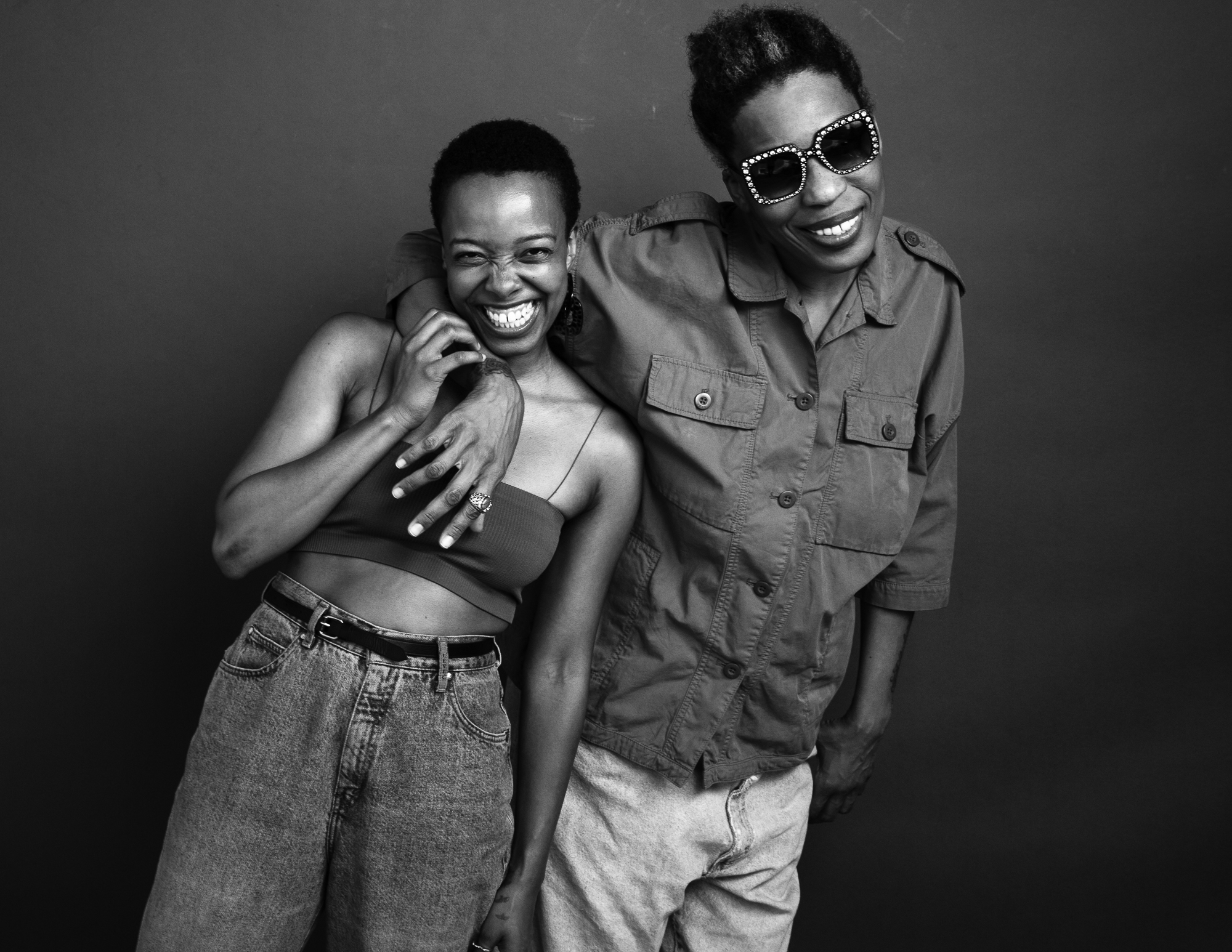
GRAY: That’s healthy. Your voice is an instrument, by the way.
WOODS: That’s true.
GRAY: Do you deal with any of that? Like, depression or anxiety? Are you a psychopath? [Laughs.]
WOODS: [Laughs.] Maybe, I can’t say.
GRAY: You better not say on tape.
WOODS: I definitely have had intense periods of sadness, or depression. I’ve been reading Questlove’s book about creativity, and he says that he thinks black artists have a certain kind of self-sabotage that they do, because we’re in this career where we have to be selfish a lot of the time. And when we come from communities that are marginalized or disenfranchised, it’s harder—it’s like survivor’s guilt. When I read that I was like, oh, I feel like that’s kind of my sadness, and this feeling that I’m never doing enough. Like I’m never succeeding the way I want to succeed in my musical career, and I’m also never there for my community or doing as good of a job as I should be. I think that’s where a lot of turmoil has come in the past.
GRAY: You’ll see, no one’s ever satisfied with it. Even Beyoncé, she still works, and she doesn’t have to.
WOODS: I never wanna stop working, but I want to have a mentorship space to my music. I can be a teacher, I can be a creator, I can be a person that has an organization, I can do it all. Maybe you’re right. I probably will never feel satisfied fully. But I wanna feel like I can, at least, encompass all of those areas in my creativity on my own terms.
GRAY: You’re never gonna feel that way, sorry. [Laughs.]
WOODS: I think I will.
GRAY: No, I’m just kidding, I hope you do. But, being an artist, that’s part of the reason you become successful, because you have all this fire, and you have all this drive, but the thing that keeps you going, it’s because it’s never enough. When you love something, you don’t get enough of it, you keep going back to it.
WOODS: I think that’s success, in a way. To keep loving it. It’s not just the music, it’s all the stuff that comes with it.
GRAY: Oh, yeah. I love every bit of it. I love the guitar, I love all of it. I love the crappy people I meet.
WOODS: [Laughs.]
GRAY: I love the whole thing. I love you today, I love all the stuff. Except for interviews, you know.
WOODS: Yeah.
GRAY: And taking pictures.



